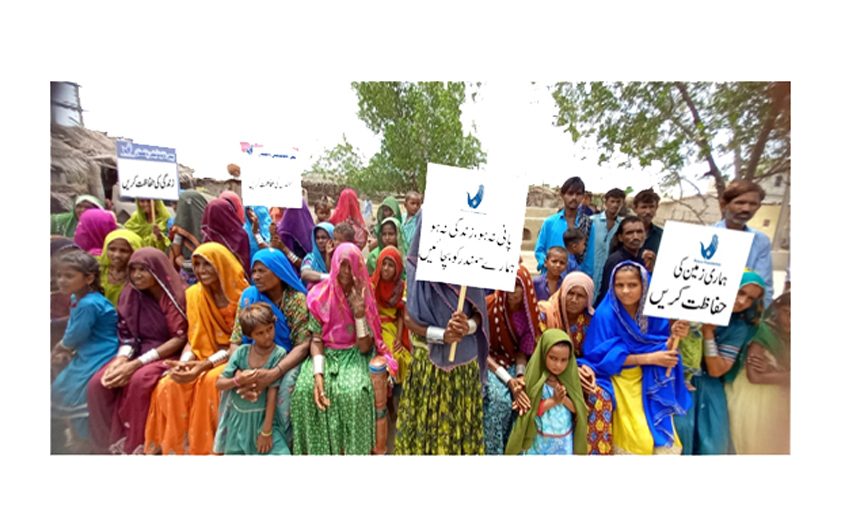
Climate Literacy program for costal women and girls in Badin District Sindh
1. Community-Based Awareness Campaigns: Over the past six months, we have conducted 25 workshops and awareness sessions, reaching 1,200 women across the region. These sessions covered climate change, its impacts, and adaptive measures to cope with the changing environment. 2. Training on Sustainable Livelihoods: A total of 300 individuals, including 150 women, have participated in skills training programs on climate-resilient practices such as mangrove planting (90 participants), organic farming (120 participants), and water conservation techniques (90 participants). 3. Development of Information Hubs: We have successfully established 5 local centers, offering climate information, disaster preparedness resources, and strategies for adaptation. These centers have served as knowledge hubs for over 2,000 community members, providing continuous access to valuable climate-related resources. 4. Participatory Risk Mapping: More than 400 women have been involved in identifying climate-related risks in their communities and co-developing mitigation strategies. The participatory mapping process has identified key climate vulnerabilities in 10 different villages. 5. Distribution of Climate-Resilient Tools: A total of 2,000 drought-resistant seeds, 50 solar-powered water pumps, and 200 portable water filters have been distributed to support communities in adopting sustainable agricultural and water management practices. Reproductive Health Activities: 1. Mobile Health Clinics: Our mobile units have conducted 40 outreach visits to remote communities, providing essential reproductive health services to over 5,000 women, including antenatal care, family planning consultations, and STI testing. 2. Capacity Building for Health Workers: We have trained 100 female health workers in reproductive healthcare and climate-adaptive strategies to better meet the needs of their communities, ensuring a more effective response to both health and climate-related challenges. 3. Peer Educator Programs: A total of 150 local women have been trained as peer educators, empowering them to disseminate information on sexual and reproductive health rights (SRHR) and family planning to over 2,000 community members. 4. Awareness Campaigns: More than 3,000 individuals have participated in awareness campaigns utilizing interactive sessions, storytelling, and folk shows. These activities have successfully addressed cultural taboos surrounding reproductive health, increasing openness and understanding in local communities. 5. Provision of SRHR Supplies: We have distributed 10,000 contraceptives, 5,000 menstrual hygiene products, and 2,000 safe delivery kits to ensure women in rural and remote areas have access to essential reproductive health supplies. Integrated Approaches: 1. Linking Health and Climate Literacy: Over 1,500 community members, including women and youth, have participated in integrated sessions combining reproductive health and climate adaptation education, reinforcing the interconnectedness of these issues. 2. Women’s Leadership Programs: We have empowered 200 women to take leadership roles in local climate and health initiatives, strengthening their involvement in decision-making processes that impact both health outcomes and environmental sustainability. 3. Community-Based Monitoring Systems: Women from 20 communities are actively involved in monitoring climate impacts and tracking community health indicators, creating a strong foundation for sustainable, community-driven development. 4. Advocacy for Policy Support: Peace Foundation has engaged with local authorities in 10 districts to advocate for improved healthcare infrastructure and climate adaptation policies, specifically focusing on the needs of coastal women, resulting in increased recognition of climate-related health issues in policy agendas. 5. Small Grants for Women Entrepreneurs: We have provided small grants totaling $50,000 to 30 women-led businesses focused on eco-friendly products and services, directly enhancing both income generation and climate resilience.